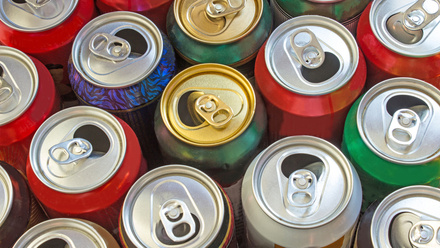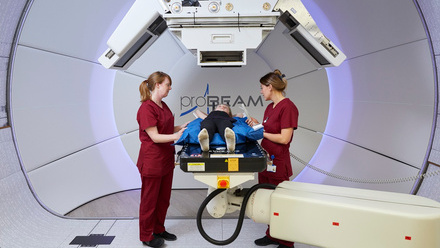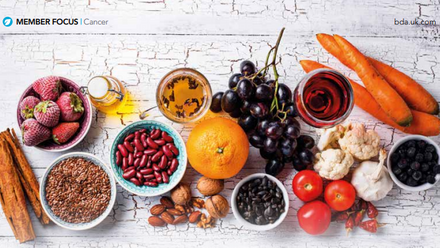The news of a cancer diagnosis is an extremely difficult time for both patients and their families. It can bring about many psychological, emotional, spiritual and physical challenges for those being treated for and living with and beyond their cancer.
It is understandable therefore that many will try to help fight cancer or alleviate treatment side effects through changing their diet. However, if you, a relative or friend are planning this, it is important to know if you are making the right or wrong changes.
What are the different types of diet?
- Complementary diet: A diet used in conjunction with medical treatment to treat cancer
- Alternative diet: A diet used to replace medical treatment to treat cancer
How do I find out if a diet is credible?
The following information summarises some of the main diets that you may come across. It describes the common myth and the facts relating to that diet that evidence has shown to date.
Common cancer diets: the myths and the facts
Dairy
Myth: Hormones used in the production of milk promote hormone related cancerous tumour growth.
Facts:
- No link between dairy containing diets and risk of cancer or promoting cancer growth as a result of hormones.
- There is evidence suggesting a protective role of dairy in the development of breast cancer through increased intake of calcium, vitamin D, butyrate, conjugated linoleic acid and lactoferrin.
Soya
Myth: Isoflavones, found in soy products have a similar chemical structure to the hormone oestrogen. Oestrogen can stimulate some cancers, therefore it was thought foods containing isoflavones might have the same effect.
Facts:
- Current evidence suggests that a diet containing naturally occurring isoflavones is safe.
- Emerging evidence is suggesting that soy containing foods are associated with lower risk of overall cancer occurrence.
- Soya foods can be used as part of a healthy balanced diet as a non-meat source of protein and provide fibre.
- It is currently not advised to take soy supplements.
Alkaline
Myth: An acidic environment promotes ill health whereas an alkaline environment is beneficial and promotes good health. It is claimed that the food you eat can affect the body’s pH and that as our blood is naturally alkaline (~pH 7.4) eating acid foods upsets the balance.
Facts:
- No consensus on grouping foods as acid or alkaline with many misclassified.
- Blood pH (7.4) is tightly regulated by the kidneys and respiratory system. Any excess acid is excreted in the urine. Blood pH is not altered by dietary intake.
- The alkaline diet suggests that eating an alkaline diet can create a hostile alkaline environment and therefore kill cancer. However neither cancer cells nor healthy cells can survive in an alkaline environment.
- There is no scientific literature establishing the benefit of an alkaline diet for curing cancer.
- The only situation in which blood pH is altered is during metabolic acidosis, when an individual is critically ill.
Sugar
Myth: Sugar feeds cancer cells.
Facts:
- Cutting out sugar in diet does not restrict glucose (sugar) to cancer cells
- Sugars are found in a number of healthy foods including complex carbohydrates, fruits and vegetables. These are high in fibre, vitamins and minerals and have been linked with a lower risk of cancer.
- It is recommended to reduce excessive sugar in the diet, particularly in the form of ‘free sugars’ or ‘simple’ sugars (for example those found in sugary drinks) as these are linked with being overweight.
Ketogenic diet
Myth: The ketogenic diet decreases tumour size and spread.
Facts:
- The ketogenic diet is a low-carbohydrate diet. There are variations, with specific proportions of macronutrients depending on the type of ketogenic diet followed.
- The existing research is on animals and in brain tumours.
- Human data is based on single cases and demonstrated weight loss, which may be a concern.
- A high protein intake may counteract the ketogenic diet by providing glucogenic amino acids for production of glucose when the level of protein consumed exceeds the normal non starvation protein turnover.
- A ketogenic diet can cause symptoms of constipation, diarrhoea and fatigue.
- Adherence may be low due to palatability, and prolonged dietary restrictions.
Fasting
Myth: Fasting can improve effect and symptoms of chemotherapy.
Facts:
- There is some evidence that short term fasting (STF) might increase the effectiveness and tolerability of chemotherapy, most of the studies are in early stages or in animals.
- These preliminary studies are based on small groups and mostly in breast and ovarian cancer.
- The fasting regimes caused side-effects including: headaches, hunger, weakness, nausea, light-headedness and weight loss.
- Due to the lack of strong evidence and the risk in certain people it is not advised if you have certain conditions, such as heart disease, diabetes, previous or existing eating disorders, a low body mass index (BMI≤19kg/m2) or history of recent weight loss.
- Intermittent fasting may be considered in adults seeking cancer prevention benefits through weight management.
Vitamin supplements
Myth: Complementary alternative medicines can increase survival and reduce recurrence, optimise treatment, alleviate side effects and boost immune system.
Facts:
- Some vitamins and minerals could interfere with how well cancer drugs work. High dose antioxidants (coenzyme Q10, selenium, vitamins A, C, E) may help prevent cell damage but may stop chemotherapy from working as efficiently.
- Vitamin D supplements (10 micrograms/day) should be taken by everyone during autumn and winter months (October- April). If you are unable to get outside during summer months, have dark skin or cover up your skin when outdoors, you should continue the 10 microgram/day supplement all year around. If you have been found to be deficient in vitamin D then you will need to talk to your health care provider about the correct dose for you.
- If you are unable to eat a nutritionally complete diet and want to take a supplement then a standard multivitamin supplement containing 100% of daily requirements can be taken (Boots® General Health A–Z, Centrum® Advance Complete A to Zinc, Sanatogen® A–Z Complete, Superdrug® A–Z multivitamins and minerals)
- Check with your oncology team before taking any supplements.
Turmeric
Myth: Taking turmeric supplements prevents and treats cancer.
Facts:
- Curcumin, the yellow pigment extracted from turmeric has antioxidant and anti-inflammatory properties - however studies have not been able to show how much can be absorbed by the body to have an affect on cancer cells.
- There are some early human studies showing some promise but the cytochrome p450 enzyme in turmeric has been shown to interfere with some chemotherapies.
- Therefore it is advised to have turmeric in food or tea but not as a high dose supplement.
Probiotics
Myth: Probiotics help your gut become healthy to fight cancer.
Facts:
- Probiotics are made of good bacteria and yeast.
- Studies have suggested probiotics may improve certain health outcomes, include side effects from cancer treatments. However, the studies are poor design with variation in species and strains of bacteria, dosage and duration of administration, making it difficult to make recommendations.
- People who are immunocompromised should not take probiotics.
- Probiotic foods can be enjoyed as part of a healthy diet and include, miso, kefir, pickled vegetables, kimchi, tempeh, yoghurt, and sauerkraut.
Top tips to help you decide if a diet is credible or a myth
There are many different types of diets circulating around the media; these top tips below can help you find out if the diet is credible or a myth:
- Check the source. Reputable sources can be medical journals, reputable cancer charities or health professionals.
- What is the evidence for the diet based on? Large population intervention studies on people with cancer would be a good basis for a reputable diet.
- Is the diet being sold? Be careful if dietary products are being sold, the profit rather than the science may be driving any health claims.
- Is the diet balanced? Diets highlighting only to eat a few foods only are unlikely to be balanced or healthy and may do damage overall.
If you remain unsure seek advice from a dietitian.
Who should I tell if I decide to follow an alternative or complementary diet?
Some of these diets can have a detrimental impact on your health and wellbeing. For example:
- They may interact with your cancer treatment or regular medications.
- They may be unbalanced and cause nutritional deficiencies.
- They may result in unintentional weight loss and loss of muscle mass.
It is essential to tell your cancer doctor, GP, key worker or dietitian whether you are following a certain diet to enable them help understand and discuss any potential side effects.
How can I help a friend or relative wishing to try an alternative or complementary diet?
Understanding why someone would choose an alternative or complementary diet is important. It helps by opening a conversation and understanding their point of view.
There may be many reasons why someone would choose an alternative or complementary diet including belief in diet, managing cancer complications or reduce side effects of conventional therapy, control, family tradition/ culture or fear of cancer returning.
Consider the following when trying to support a friend or relative:
- Acknowledge and listen to their rationale for following a diet. It helps by gaining a better insight to their decision making process.
- Try to find out if the diet is credible using the above tips and ask them if they want to see the information you have found.
- Ask if they would like to discuss it with a dietitian or a health professional to see if there are any contraindications or if would do harm.
- Consider whether a psychologist or counsellor would help to explore any worries, anxieties that may have led to this decision.
- Be there for them. Even if you disagree with the decision, try not to let it harm your relationship.
Summary
Choosing an alternative or complementary diet can impact on someone’s health, therefore it is important to research thoroughly by choosing accurate, good quality evidence and speaking to health professionals. Being open and honest helps with understanding different points of view and opens up conversations between relatives, friends and health professionals.
More information
The following are useful sources of further information. If you feel you would like individual dietary advice, please request a referral to your local or specialist cancer dietitian.




